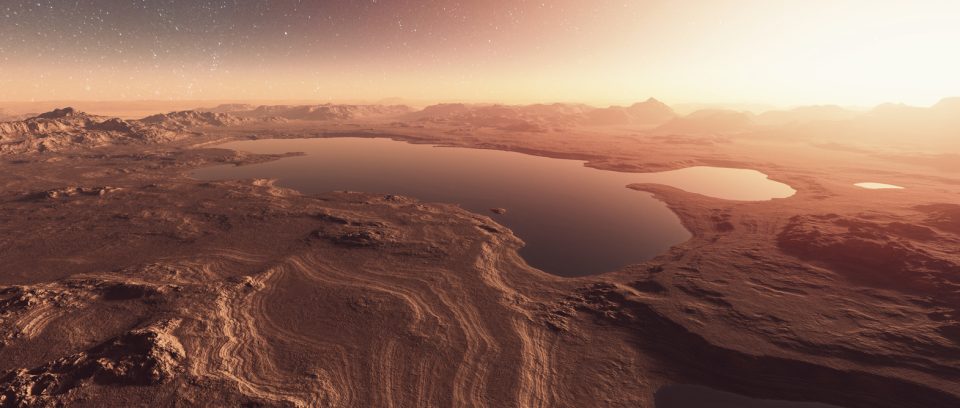
Early Mars may have hosted life. Here’s why

Rocky, deserted and red planet Mars may have actually supported life and had huge oceans, if a recent study is to be believed.
According to researchers at Center for Star and Planet Formation at the University of Copenhagen in Denmark, icy asteroids brought water to the planet in its early days, enough to create a global ocean that is 300 metres or 980 feet deep. Researchers say it is likely that the same asteroids could have ferried organic molecules needed to begin life on the planet.
Also read: Life on Mars? Bacteria may have survived under its surface for 280 million years
The peer-reviewed study was published in Science Advances on November 16, 2022.
The researchers from the University of Copenhagen were assisted by others from the Institut de Physique de Globe de Paris at the University of Paris, the Institute of Geochemistry and Petrology at ETH Zurich and the University of Bern Physics Institute.
The study says that when the asteroids bombarded planets in their early days, they brought water and organic molecules like amino acids, which are vital for life to thrive, to the entire solar system.
“At this time, Mars was bombarded with asteroids filled with ice. It happened in the first 100 million years of the planet’s evolution. Another interesting angle is that the asteroids also carried organic molecules that are biologically important to life,” Martin Bizzarro from the Center for Star and Planet Formation (Star Plan) at the University of Copenhagen said in the study.
While the new study suggests that ice brought by the asteroids led to enormous accumulation of water on Mars, and formation of oceans with a depth ranging from 300 metres to 1 km, it says that the water was in addition to the reservoir formed by outgassing from the planet’s mantle.
Also read: Scientists find new evidence for liquid water beneath south pole of Mars
“Late delivery of this volatile-rich material to Mars provided an exotic water inventory corresponding to a global water layer >300 metres deep, in addition to the primordial water reservoir from mantle outgassing,” the study said.
Scientists, however, are yet to ascertain the exact extent of water that covered the planet at that time.
A previous study had found that an ancient ocean likely covered a greater chunk of the northern hemisphere in the lowlands of the planet.
Bizzarro said that the phenomenon could have happened within Mars’ first 100 million years.
Also read: What’s the Iceland-Mars link? Meteorite Black Beauty tells a tale
“After this period, something catastrophic happened for potential life on Earth. It is believed that there was a gigantic collision between the Earth and another Mars-sized planet. It was an energetic collision that formed the Earth-moon system, as the same time, wiped out all potential life on Earth,” he added.


